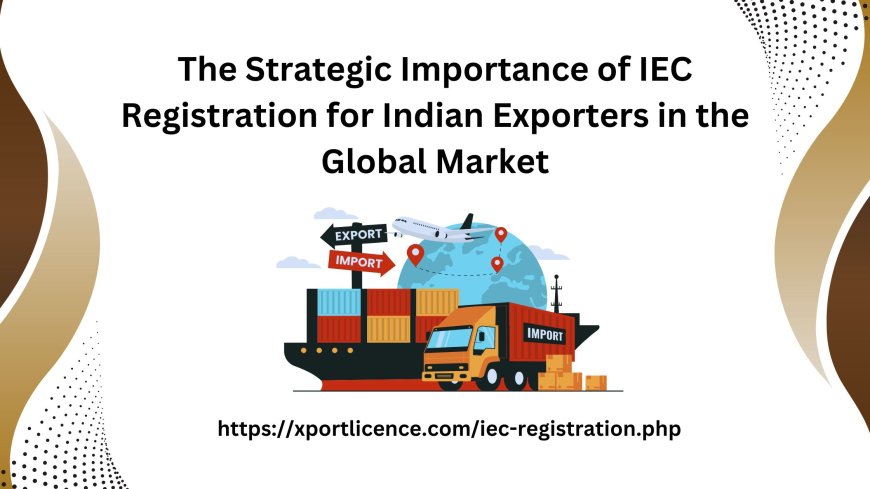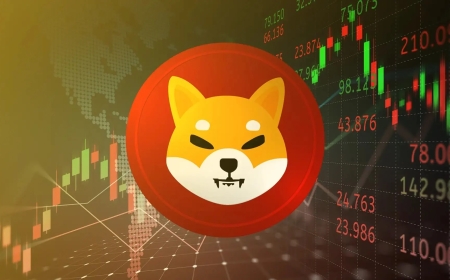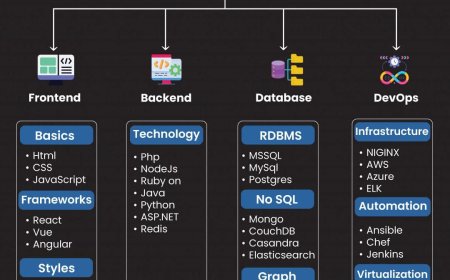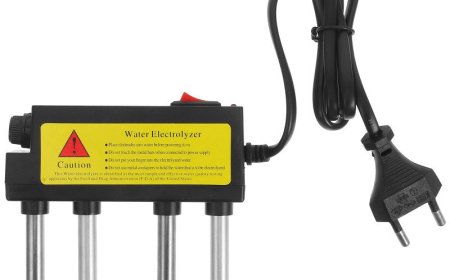The Strategic Importance of IEC Registration for Indian Exporters in the Global Market

In the rapidly evolving global trade landscape, India is emerging as a key player in the export and import sector. One essential step that paves the way for Indian businesses to enter international markets is obtaining an Import Export Code (IEC). ThoughIEC registration is often seen as just another compliance formality, its role goes far beyond that. It acts as a gateway to global trade, enabling businesses to access international markets, avail government incentives, and establish credibility worldwide.
What is IEC Registration?
IEC (Import Export Code) is a 10-digit unique identification number issued by the Directorate General of Foreign Trade (DGFT), Ministry of Commerce and Industry, Government of India. It is mandatory for any individual or business entity that wants to import or export goods and services from India.
Why IEC Registration Matters: Strategic Business Benefits
Global Market Access
IEC is your passport to the global marketplace. Without it, businesses cannot legally export or import products. Whether you're a startup exporting organic spices or a large manufacturer dealing in electronics, IEC is the first legal requirement to go international.
Eligibility for Government Incentives
The Indian government and bodies like DGFT, Customs, and the Ministry of Commerce offer multiple benefits, subsidies, and schemes (like MEIS, SEIS, and RoDTEP) to exporters. An IEC number is mandatory to claim such benefits.
Ease of Compliance
Once registered, the IEC number does not require periodic renewal or filing of returns. This simplicity makes it a hassle-free document for global trading activities.
Credibility in International Business
Foreign buyers often check for the legitimacy of exporters. Having an IEC number establishes your business as authentic and trustworthy, making it easier to form international partnerships.
Business Expansion
IEC allows Indian companies to expand their businesses beyond borders. With the rise in e-commerce and cross-border B2B platforms, even small and medium enterprises (SMEs) are leveraging IEC to grow globally.
Who Needs IEC Registration?
IEC registration is required by:
-
Individuals or proprietors who export/import in their name
-
Private limited companies
-
Partnership firms and LLPs
-
Trusts and Societies engaged in trading goods internationally
-
E-commerce sellers exporting goods (e.g., through Amazon, Flipkart, Shopify, etc.)
Exemptions from IEC
IEC is not required in the following cases:
-
When goods are being imported/exported for personal use and not for commercial purposes.
-
For ministries or departments of the central or state government.
-
Import/export by individuals or entities notified by DGFT as exempt.
Step-by-Step IEC Registration Process (Online)
IEC registration can now be done completely online through the Xportlicence.com portal. Here's a simplified process:
Go to the IEC Registration Portal Visit the official website where you can apply for an IEC online.
Fill the Online Form Enter your business name, PAN number, business type, address, and other required details carefully.
Submit the Form After checking all details, click submit. Make sure everything is correct to avoid delays.
Pay the Registration Fee Complete the payment online using UPI, credit/debit card, or net banking.
Application Processing A registration executive will review your application after payment is confirmed.
Get Your IEC Certificate You will receive your Import Export Code (IEC) certificate by email, usually within 1 to 2 hours.
Documents Required for IEC Registration
PAN Card PAN of the business or individual (mandatory for all applicants).
Identity Proof Aadhaar Card / Voter ID / Passport of the business owner or authorized person.
Address Proof of Business Electricity Bill / Rent Agreement / Property Tax Receipt / Lease Agreement.
Cancelled Cheque or Bank Certificate A cheque with your business name printed or a bank certificate as proof of account.
Email ID and Mobile Number Required for OTP verification during the application process.
Digital Signature (DSC) Only required for companies or LLPs (not needed for individuals).
Common Mistakes to Avoid
-
Incorrect PAN details Ensure the PAN matches the applicant/business.
-
Mismatch in business name Must be consistent across all documents.
-
Not updating changes Update the IEC if a business name, address, or constitution changes.
-
Non-submission of documents Even though IEC is online, proper scanned documents are essential.
Post IEC Registration Whats Next?
After receiving the IEC code, businesses must:
-
Keep a digital and printed copy of the IEC certificate.
-
Share the IEC with customs officials during shipments.
-
Update the IEC profile annually (a new DGFT mandate since 2021).
-
Ensure consistent use of IEC in all export/import documentation.
Strategic Tips for Exporters After IEC Registration
Register on ICEGATE and EPCs
After IEC registration, create a profile on ICEGATE for customs clearance and connect with Export Promotion Councils (EPCs) relevant to your industry.
Get an RCMC Certificate
For certain export benefits, a Registration-Cum-Membership Certificate (RCMC) from an EPC is required.
Apply for LUT for GST
Exporters can export without payment of GST under a Letter of Undertaking (LUT). This avoids cash flow issues.
Open a Foreign Currency Account
Banks allow exporters to open EEFC (Exchange Earners' Foreign Currency) accounts to save on currency conversion charges.
Note:- Now you can easily update and renew the iec code online
Final Thoughts
In a globalized economy, where cross-border e-commerce and international trade partnerships are booming, IEC registration is no longer optional; its essential. It gives Indian entrepreneurs, SMEs, and large businesses the power to expand their operations, reach international customers, and grow sustainably.
The process is simple, affordable, and largely digital, making it accessible to all. With the right strategy, businesses can utilize IEC not only as a compliance tool but also as a strategic asset in their international growth journey.




































